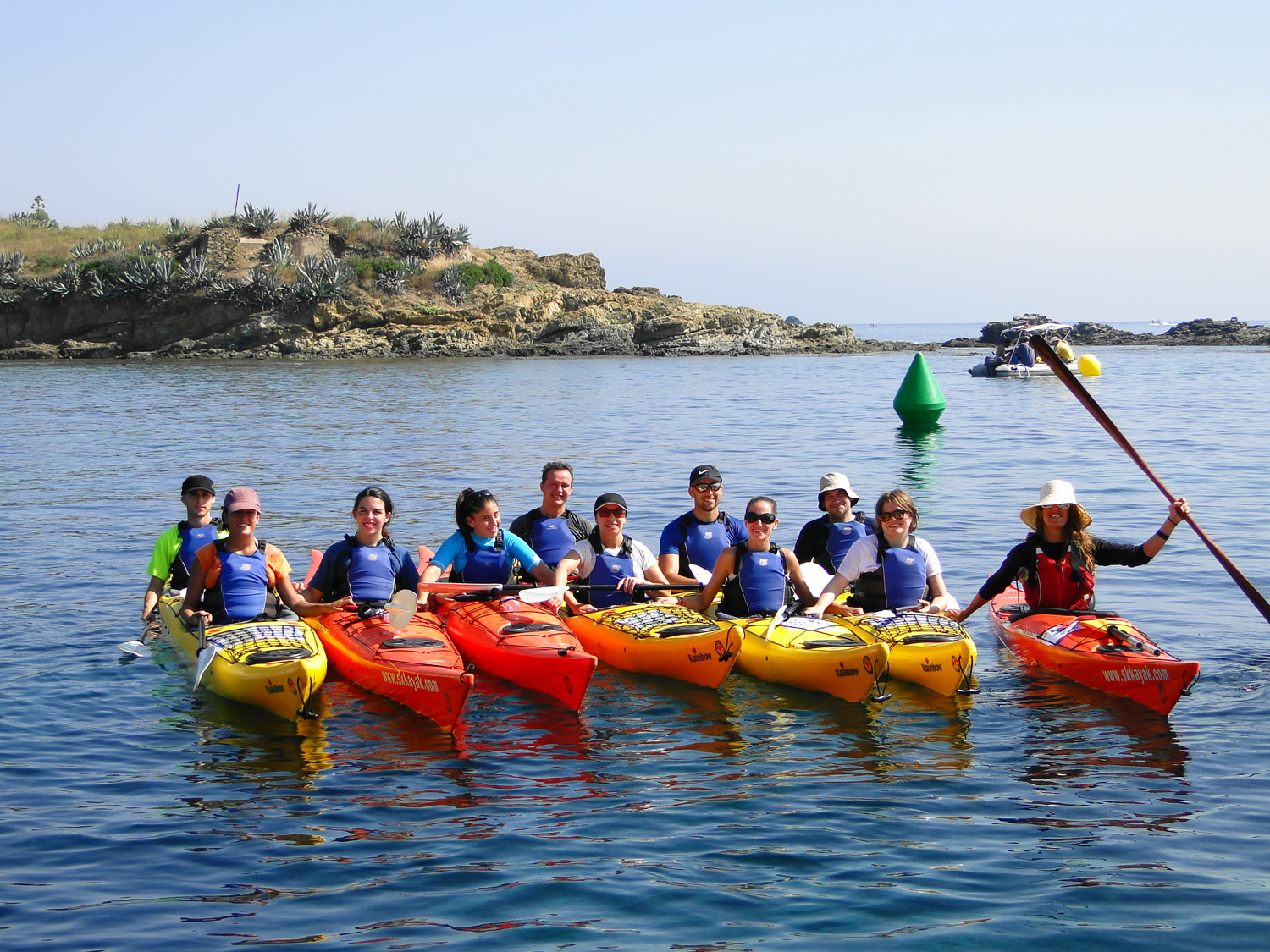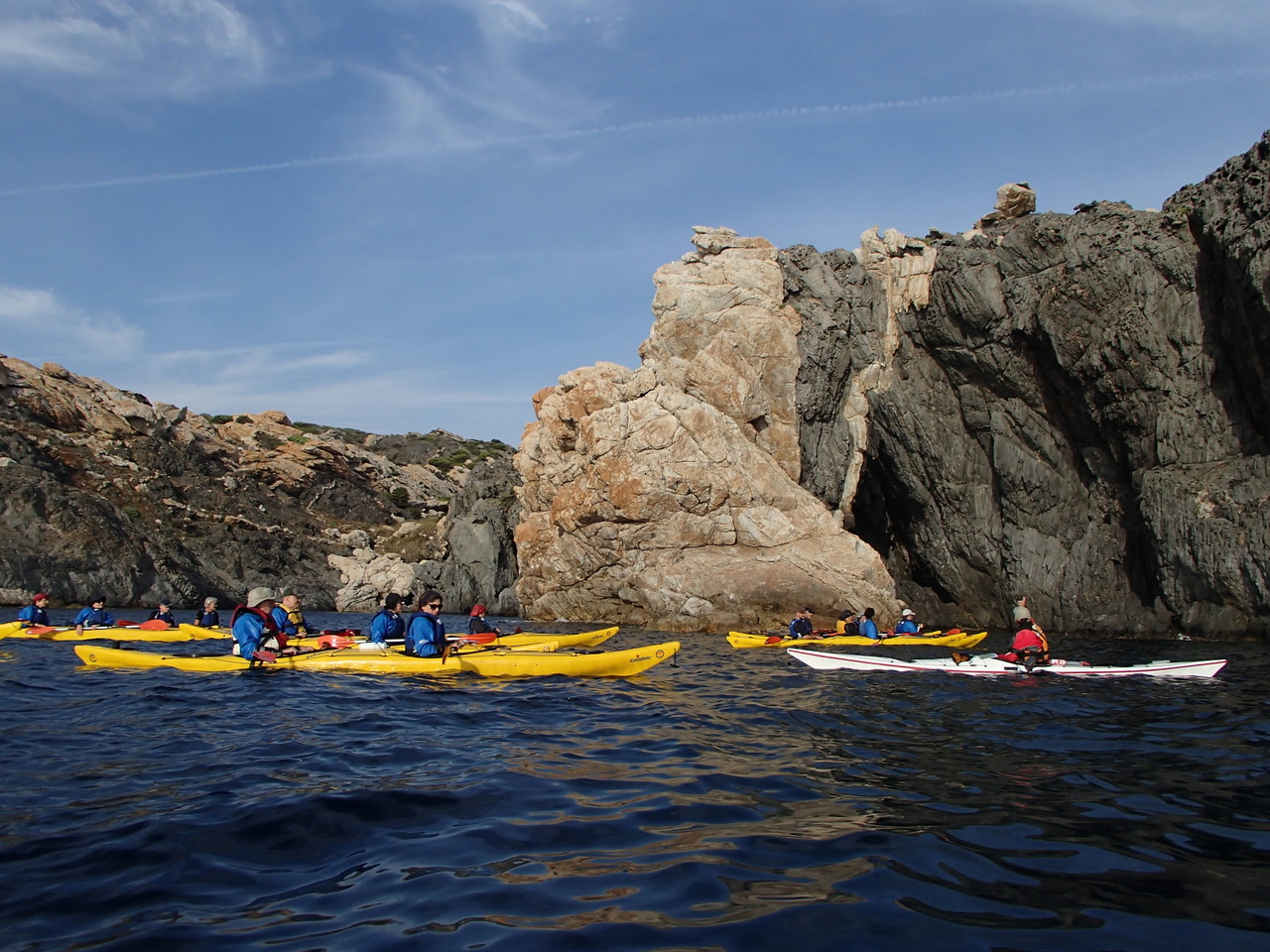Kayaking
This study aimed to evidence the positive effects of sea kayaking on human health and wellbeing
Information from both scientific and non-scientific sources was collected, and interviews conducted with professional kayaking guides at Cap de Creus Natural Park. To date, few studies have focused directly on the positive effects of kayaking on human health and wellbeing. Even less attention has been given to the particular psychological benefits of sea kayaking, despite evidence from non-scientific sources and interviews that indicate it is beneficial for psychological wellbeing.

Mental health
Regarding mental health, a study by King (1974) stated that kayaking is a basic and significant source of pleasure for everyone. This suggests that kayaking is in some way a "fun" experience for all, regardless of physical limitations. However, there is a lack of studies on psychological wellbeing associated with kayaking, and further research is needed. More recent studies have focused on the benefits of kayaking for the psychological health of people with spinal cord injuries (Taylor, 1996). Results of the study reveal that, first and foremost, kayaking provides a sense of relaxation and peace. It is a way to create new social connections based on new experiences, enabling participants to overcome their fears, and bringing a sense of self-confidence and motivation to keep going. Kayaking is an effective way to turn the focus away from problems, such as injuries or disabilities, and towards to a new activity which gives individuals a sense of moving on to something that is possible, despite their limitations. In effect, limitations are left behind, and thus, their importance diminished.
Findings from the study also show that feeling good about kayaking, and being successful at it, rebuilds self-esteem and self-confidence. This alone motivates people to continue to be active and lead a healthy lifestyle. The study participants emphasized the importance of non-traditional rehabilitation such as kayaking and other outdoor activities, as “One of the best things about kayaking may be that it takes the wheelchair out of the activity" (King, 1974). A unique advantage of this sport is that the rocking motion of the kayak on the water provides the paddler with simultaneous vestibular stimulation on numerous planes, whether healthy or injured.
The majority of non-scientific sources emphasize the psychological benefits of kayaking. The information reviewed supports the idea that sea kayaking improves mental health and lowers stress levels. As it is an inclusive, low-impact activity, kayaking offers people with disabilities the opportunity to paddle together with people with no physical limitations. There is also no age limit so it is easier for people of different ages, and from different backgrounds, to meet and socialise, and this raises self-confidence. A number of websites point out that being out in the open water has a very meditative effect. Paddling combines physical activity and the tranquillity of floating on water, thus reducing stress.
In the interviews conducted with professional guides, all the guides strongly agreed that sea kayaking produces a very strong sense of freedom, self-connection, contact with nature and the sea, and relaxation. Kayaking provides an opportunity for new experiences and environments, and allows the kayaker to disconnect from the routine of daily life. Sea kayaking can bring many contrasting sensations and experiences. For example, on days with good weather, it brings a sense of calm, tranquillity and silence. In contrast, when the sea is rough, the associated adrenaline rush brings intense feelings, a respect for nature, and even fear. In all cases, it brings a sense of freedom and autonomy. For children it is exciting, and for adults, a way to find peace, relaxation, contemplation, and connection with nature; an exciting activity that positively affects self-esteem.

Physical health
Regarding physical health, many studies have researched the possible negative effects of kayaking, including injuries and physiological changes. However, very few have looked at the possible benefits of sea kayaking on physical health. The few existing works provide clear evidence that kayaking is an outdoor activity that can be enjoyed with easy motions and with minimal skill, and that can be done equally by both the able-bodied and those with disabilities. Kayaking is very demanding on the body, and challenges the balance control system. Studies show that kayak training programs are highly effective in improving the muscle strength of the upper limbs, handgrip strength and balance in both the sitting and standing postures of community-dwelling elderly people (Bjerkefors et al 2006; 2007). In cases of people with spinal cord injuries, or related disabilities, evidence suggests that kayak training leads to increased shoulder muscle strength and postural stability. In both cases, the results were obtained using a 3-D virtual reality kayak program and kayak ergometer training. Thus, further work could be carried out to establish differences between these methods, and the impacts of a similar program carried out at sea.
Non-scientific sources of information (i.e. opinions of non-professional (inexperienced) kayakers) indicate that sea kayaking has numerous health benefits. According to the articles cited, sea kayaking improves aerobic fitness, builds strength and improves flexibility. Paddling is an inclusive, low-impact activity, and so offers opportunities for people with disabilities to do sport alongside healthy people. There is a much lower risk of wear and tear on joints, and there is no age limit. It helps develop core strength, which on its own improves balance.
Responses from kayaking instructors who participated in the interviews support the conclusions drawn from the literature. Their observations and professional knowledge indicate that people exercise their arms, back and abdominals when paddling. Once the kayaker is experienced and has improved their paddling technique, they get more complete body work out. This includes legs, toes, and the whole upper part of the trunk, and the back, lumbar, pectoral, large dorsal, inferior, trapezoidal, and abdominal muscles. By practising and improving their technique, people also improve their general balance and posture.
Overall, the results from the study, and opinions of both kayakers in Cap de Creus and the many communities of sea kayakers around the world, support the hypothesis that sea kayaking is beneficial for human health and wellbeing. Nevertheless, the results of the study are insufficient to draw general conclusions. Many questions have been raised, and this points to the need to carry out further research on the topic.


















